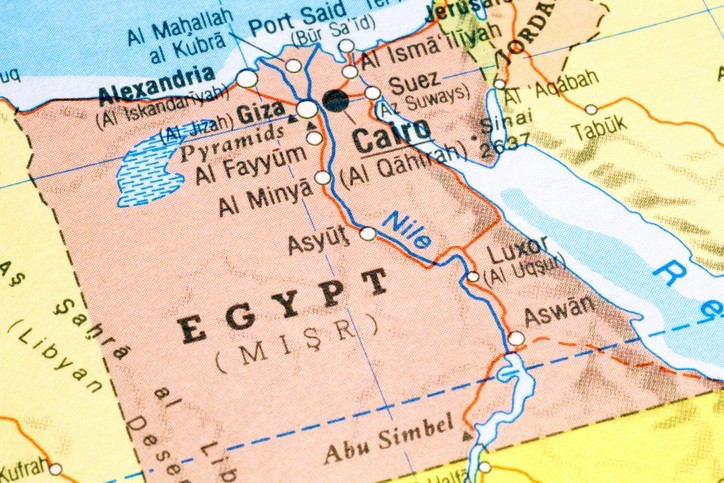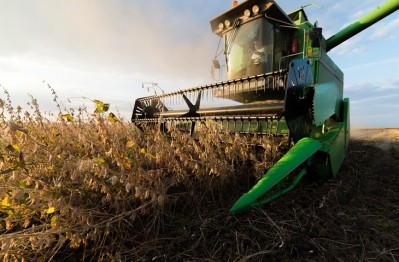ADM and Cargill in soybean meal tie-up in Egypt

The US agribusiness giants have agreed to form a joint venture in that market.
A spokesperson for Cargill explained to FeedNavigator why it saw it as necessary to align with ADM in this respect and not go it alone:
"ADM and Cargill have a similar outlook and approach, and both companies recognized the opportunity and value to forming a joint venture company dedicated to focusing on the Egyptian market. This joint venture would be well positioned to service the growing demand for a reliable and high-quality source of soybean meal and soybean oil, for the animal feed and food manufacturing industries, which are vital for the Egyptian economy."
The alliance would own and operate a soy crush facility in Borg Al-Arab along with related commercial and functional activities.
"Cargill currently has a majority shareholding and manages the National Vegetable Oil Company (NVOC) soy crush facility in Borg Al-Arab. A separate Switzerland-based merchandising operation will be set up to supply soybeans to the crush plant [as part of the JV]."
Capacity at the crushing facility in Borg Al-Arab is currently being expanded with the aim of doubling it to 6,000 metric tons of daily output. That work will be completed at the end of next month, said the spokesperson.
Cargill already invested US$100m in that facility in 2015 in an attempt then to increase capacity. The plant is set up so that it generates higher-protein soybean meal, thus creating supply efficiencies, said the Minneapolis headquartered firm.
The deal with ADM, which is not yet complete, is subject to regulatory review. Mid-2018 is the target date for the launch of the JV.
The companies said the move is a central plank in their strategy to grow their business across Egypt and the North Africa region. Demand for high-quality soybean meal and oil in Egypt is outpacing the rest of the world, they added.
The joint venture would be managed as a standalone entity, with Cargill and ADM having equal ownership; a management team would report to a board of directors appointed by the two parent companies.
The JV's assets would not include Cargill's grain business and port terminal in Dekheila, or the ADM-Medsofts joint venture at the Port of Alexandria. Each company will continue its separate business activities in the country and region.
Food security
Egypt is facing challenges in the agricultural sector, such as a rapidly growing population; land fragmentation; urban encroachment on agricultural lands; limited water resources; and the need for more healthy and nutritious food, according to a USDA report.
Indeed, food security was the subject of a forum in December last year organized under the auspices of the Government of Egypt (GOE), the Food and Agriculture Organization (FAO) of the UN in cooperation with the World Bank and the European Bank for Reconstruction and Development (EBRD).
The forum bought together policymakers, finance institutions, producer associations, and major agri-business companies to discuss agricultural investment in Egypt; it saw the signing of a joint statement by the GOE and the three institutions; to improve food security and to partner on joint activities promoting sustainable agricultural investment in the North African country.
Dr Abdel Moneim El Banna, Egypt’s minister of agriculture and land reclamation, speaking at the event, stressed that his government was keen to provide a positive and appropriate environment for investment in the country’s food and agriculture sectors.
The major takeaways from the forum, wrote USDA market analysts in a review of the event, were that Egypt will remain, certainly over the next five years, the world’s largest importer of wheat, with 12.3 million metric tons in imports forecast for 2018. The country will also be a major importer of yellow corn for feed use and soybeans in that period.
The Egyptian government is working to streamline import regulations and procedures, said the USDA team. Local officials are seeking to minimize disruptions to the country’s vital grain trade; High local demand for soybean meal and oil will continue to drive good import demand for soybeans for local crush, wrote the USDA analysts.
The Egyptian government, over the past three years, has expanded its grain storage capacity by 1.5 million metric tons (MMT). It aims to add a further 420,000 metric tons (MT) of capacity, according to the US agency’s report.
Despite the Egyptian poultry industry’s high production costs, which tend to get passed onto consumers, as well as disease and inefficiency in many of the country’s small- and medium-size farms; the local industry still manages to provide for up to 95% of Egypt’s poultry (white) meat needs and 100% of its eggs, noted the USDA.
However, vertically integrated poultry projects in desert areas are targeting improved efficiency and profitability.












